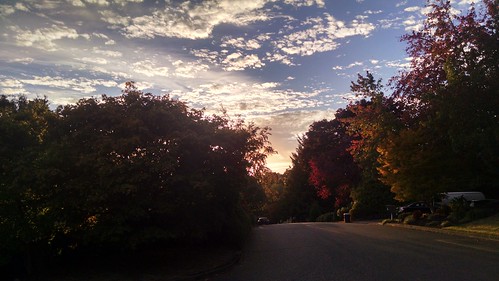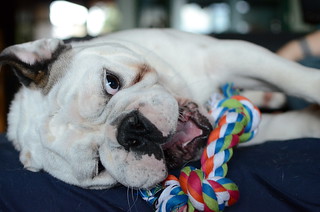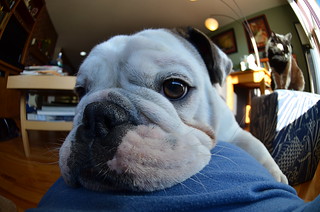At the beginning of the year, I announced Authentic Engine, my new consultancy.
I’m going to share a rather honest update about how things are going, and I plan to do so with some regularity. This gives me some trepidation. Visibility nearly always makes me feel vulnerable, even if the attention is subjectively positive. And general business wisdom favors secrecy and possessiveness above transparency and sharing. Instead, I’m making a deliberate choice to muster courage to favor intimacy (which requires vulnerability) and community.
Perhaps some of you reading are potential clients or customers and in reading about my uncertainties and missteps you’ll decide not to work with me. I’m okay with that, for if my writing here turns you off then we were never going to be a good match. What’s gained, I believe, will be far greater than whatever’s lost. Some will be enriched reading about my experience. Others will appreciate my candor and that I’m willing to do the scary work of making mistakes, sharing those mistakes, and trying again. Some of you will be motivated to work with me explicitly because of this writing.
So here goes it!
A raison d’etre
While I have a great deal of open source tech experience (my first tech job was in 1997 at UC Davis’ network operations center), I have almost no experience consulting in the way I’ve set out to do now. I’ve worked at start-ups and well-established companies. I’ve started and ran non-profits. I ran my own programming shop under CK Web Development. All those experiences have been immensely valuable, but my experience with them has limited applicability to what I want to build now.
I’ve gravitated towards consulting because I want to apply my experience as a programmer, a technical project manager, a developer advocate / technical evangelist, a non-profit manager, a small business person, and an open source community organizer to help folks working in those fields have better work experiences.
By better work experiences, I mean a few things:
- authenticity, presence, mindfulness, and empathy in day-to-day work;
- empowered, adaptive leadership;
- effective navigation of organizational life; and,
- the building of meaningful and fulfilling careers without burning out.
This isn’t just about making people feel better at work. Whatever your current role in tech, these are practices which will make you better at your job. The production of software, the governing of open source projects, the evangelizing of technology all requires building and maintaining relationships with people. The better your people skills, the better you can effectively apply your technical skills.
By focusing my work on individuals, I intend to contribute to a cumulative effect of improving our technical and open source communities. The more the folks that make up our communities practice and cultivate the above “people” skills, the more inclusive, sustainable, resilient, and commons-serving they will be.
So that’s my raison d’etre for starting Authentic Engine, but how am I actually going to make a living?
What appeals to me about “consulting”
Before I announced Authentic Engine, I did a lot of reading on what it mean to be a consultant and how to run a consulting practice. Some things I read resonated with me deeply: consulting as a calling, humble inquiry, being a trusted adviser, process consultation and the helping relationship. Other things I couldn’t connect with at all, especially the nature of the marketing and sales processes many consulting business books (such as this one) espouse. I don’t want to have a ton of annoying pop-ups soliciting your email for watered-down content, or resell someone’s proprietary organizational trait assessment. Moreover, many books are scant on details about how to actually develop customers if you don’t already have a base established.
Finally it occurred to me to start thinking in terms of answering the question, “what is my product?” The consulting books say you are your product. Okay, I get that to an extent. But it doesn’t feel very sustainable or scalable to me. Nor does it have the depth of experience I want Authentic Engine to bring to others. I want many teachers, and coaches, and trusted advisers, with all their varied histories, experiences and backgrounds to inform and create what we bring to others.
If I am not my product, what is?
So now that I’ve rejected that I am my product, I have to find out what is. That has me researching and learning all about product development. Working in technology as a programmer, project manager, and developer advocate means that I’ve been on the periphery of product management and development most of my career. Now I’m embracing the role officially, which means learning and practicing a new way of thinking.
I’m in the middle of Steve Blank’s The Four Steps to the Epiphany, which focuses on a kind of lean product development for startups that Blank calls Customer Development. So far the framework is making a lot of sense to me. It centers upon developing a deep understanding of your customer and their needs and using that to inform your product development.
Learning deeply from my customers
So that’s what I’ll be doing next. I’ll be thinking about my customers — starting with folks who hold the jobs I’ve had before: technical evangelists (aka developer advocates) and their managers, software developer and their managers, technical product marketing managers (which I’ve worked for, producing events), and open source project stewards.
Actually I’ll be doing more than just thinking about them. I’ll be reaching out to as many of them–as many of you–as possible to listen and learn what their pain points are, what those pain points are costing them, and how they’d like to solve them. I’ll use this information to validate and improve my hypotheses about the Authentic Engine products that will help them.
Exciting and scary
I’m finding this approach very exciting. I love connecting with people, learning about them, building connections, and figuring out ways . But it’s also terrifying because I know this will take time and our financial reserves are dwindling. While I’m developing my customers and products, I’m also going to have to find income, either through consulting or contracting.
How you can help
So, if you or someone you know is needing help with planning a community-focused technical event (like Open Source Bridge, which I co-chaired for 5 years), or managing a technical project (like creating a localization platform for Firefox OS App developers, which I did at Mozilla), or revitalizing a community contributor platform (like I did with MozillaWiki), or improving open source governance (Stumptown Syndicate), or anything else about which I have subject area expertise, please get in touch or book a meeting.
A promise to continue sharing and connecting
Meanwhile, I’ll keep sharing here what I’m working on and what I’m learning.
Soon I’ll post about:
- realizing I need to be talking to lots more people and how I’m following through on that despite how weird and shameful it can feel;
- what I’ve learned about content-based marketing and how I’m putting it into practice;
- how Sherri and I are figuring how how to support one another and keep our household functional while we both build new businesses;
- what I’m doing to manage my workload, replenish my “spoons,” and avoid burn-out; and,
- learning to be okay with uncertainty, imperfection, and iterative improvement.
Keeping in touch
As I intimated above, I promise to make more, better connections with all of you. And I invite you to do the same. Leave a comment below, send me an email, or a tweet, or give me a call (go to authenticengine.com for phone number).




